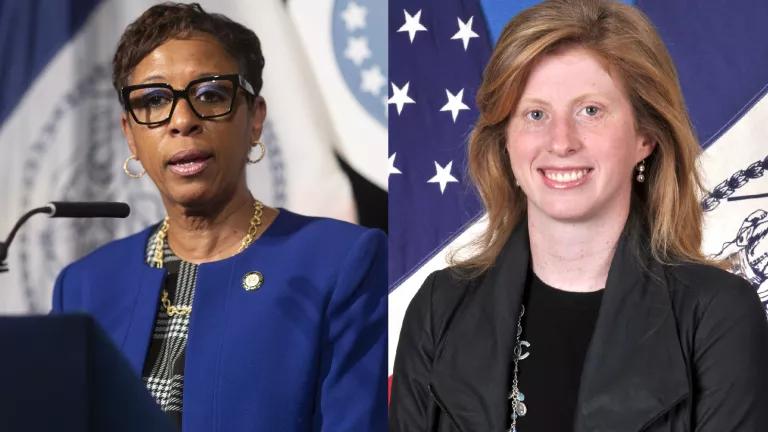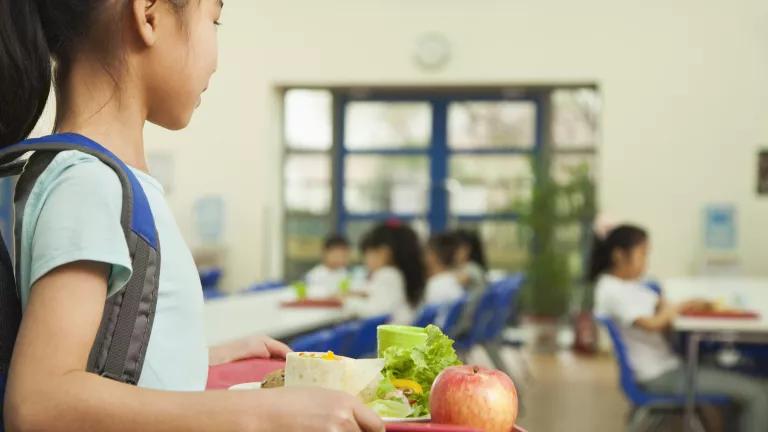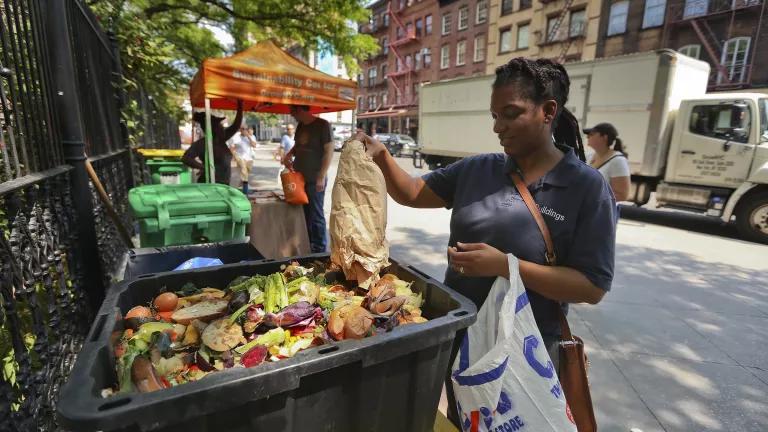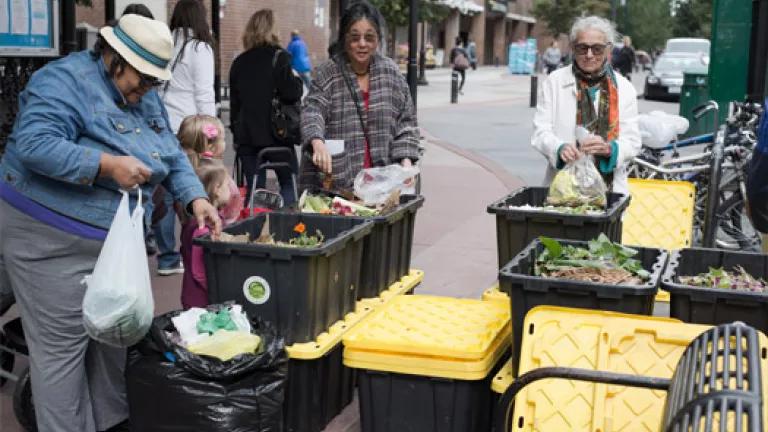Curbside Composting Legislation on Launchpad in NYC Council
Momentum is building for New York City to lock in a citywide curbside food scraps and yard waste composting collection program beginning as early as January 2023.

Council Speaker Adrienne Adams and Sanitation Commissioner Jessica Tisch will earn environmental plaudits if universal curbside composting bill becomes law this year.
Momentum is building for legislation that would lock in a curbside food scraps and yard waste composting collection program for all residents across the nation’s largest city.
City Council Intro 244 would direct the Department of Sanitation to establish a mandatory, citywide program for the collection of residential organic waste at curbside beginning as early as January 2023.
The legislation, spearheaded by Councilmember Shahana Hanif and Solid Waste Committee Chair Sandy Nurse, now has a super-majority total of 41 sponsors in the 51-member Council, more than enough to override a possible mayoral veto.
If enacted, the universal curbside composting statute could well become the most significant piece of environmental legislation adopted by the Council in 2022.
Notably, the Council Speaker, Adrienne Adams, signed on as bill’s first co-sponsor. Her leadership and support for this sensible environmental program suggests that ultimate passage of this bill, in one form or another, is likely.
At a recent Council hearing on a handful of solid waste reform proposals, including Intro 244, New York City Sanitation Commissioner Jessica Tisch expressed support for the concept of universal curbside recycling, although not necessarily the express provisions of the current bill.
“The next time we roll out a curbside organics program must be our last. We must get it right this time. That is an area of my intense focus,” the Commissioner stated.
The Department has experimented with voluntary curbside organics collection initiatives going back to 2013, when the Council first directed the creation of a curbside collection pilot project. After several stops and starts, this voluntary program—in its latest version—is serving residents in seven of the city’s 59 community districts.
But the program’s voluntary nature, a weak public education component and its “on again, off again” implementation history have led experts to conclude that a successful curbside organics strategy must include a mandatory directive, with collections serving all city residents to ensure broad participation.
The move to collect organics at curbside in every city neighborhood is picking up steam for obvious reasons:
- Keeping food scraps and yard waste out of landfills and incinerators and sending them to composting (or anaerobic digestion) facilities is one of the most effective steps that local governments can take to reduce their own global warming emissions.
- Taking these organics out of the waste stream means fewer impacts on already overburdened environmental justice communities, where waste transfer operations and polluting incinerators and landfills are too often located.
- And when curbside organics collection programs are operating, food scraps are placed out for collection in vermin-proof bins rather than the plastic bags that these days serve as on-street food cafeterias for the city’s brazen rat population.

Rats will be the big losers if curbside composting law is enacted, since food scraps will be placed out in vermin-proof containers instead of plastic bags.
Significantly, instituting a universal curbside organics program would also be a smart long-term move for city taxpayers. Simply stated, taking food scraps and turning them into the useful product of finished compost can save taxpayer dollars—once a citywide curbside system is fully operational with broad participation—vs sending these materials to landfills or incinerators. That has been the experience in Seattle and San Francisco.
And New York City’s Independent Budget Office (“IBO”) recently confirmed that, if a citywide curbside organic waste collection program is effectively implemented, economic benefits would likely result. According to an April 2022 IBO brief, while the costs for starting up a citywide curbside collection would be higher during the first three years as the program builds participation, taxpayer savings could begin by year four. And, after year five, “diverting organics would save around $33 million annually relative to current waste collection and disposal costs.”
What is needed now is for the bill’s sponsors and Council leadership to sit down with the Sanitation Department and City Hall to try to agree on final legislative language.
We hope that the final version of Intro 244 includes the following: (1) a directive that the Department submit a detailed implementation plan to the Council, which among other things outlines an ongoing, multi-lingual public education strategy to support the program and describes how curbside collection and community composting operations will work together; (2) a description of how rodent-proof organics collection bins will be distributed to every residential building; (3) a codification of the Administration’s pledge that all school buildings will implement separated organics collections no later than September 2023; and (4) a schedule for phased implementation of curbside composting collections, beginning with voluntary participation in January 2023 and reaching citywide mandatory compliance at every residential building no later than January 2025.
With Speaker Adams, Majority Leader Keith Powers and Councilmembers Hanif and Nurse leading the way, the time for enactment of this sensible, popular and far-sighted waste reform bill seems finally to have arrived!




